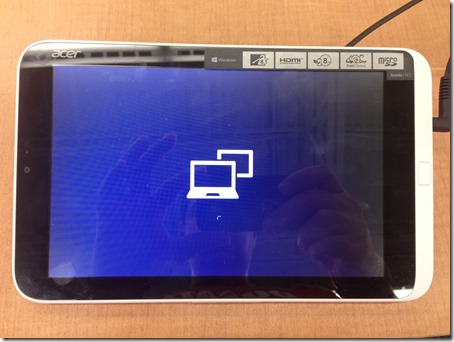It’s been a busy week at ExchangeDefender so I’ve slacked off on Vladville. Gonna make it up right now: Many of you are new to Vladville (readership keeps on growing or the botnet keeps on spreading, not sure which) so I want you to take the following article in the proper context: I’m not a journalist, I’m (obviously) not a writer, I don’t spell check and this is just my opinion. I don’t get paid or get any pleasure in writing anything negative – think of it as a public service to get you to act/change.
I spend a lot of my nonexistent free time reading about history and economics. I spend the rest of the day with CNBC, BBC and other news channels humming in the background covering the world events.
What is going on in the world… is an outright crime. I am writing this because of what I’ve seen happen in Greece, what I’ve seen firsthand happen in Italy, France and England – what I’ve watched happen in Cyprus and finally.. what happened yesterday as Detroit filed for bankruptcy.
Times are changing and you have to as well.
Brief History of Employment
In the long long ago (prior to 1800’s) there were really only three industries: military, farming and whoring. Then, mostly thanks to the contributions of the Medici’s and Gutenberg, the renaissance and religious freedom paved the way for the industrial revolution and suddenly there were a lot more than three things people did for profit.
In the past 100 years we’ve had three incredible evolutions of a small business employee and in one way or another those are still present within the global workforce.
Indentured servitude (aka “Diet Slavery”), was pioneered by Henry Ford and to the present day it consists of pounding the willing employee within the last inch of their theoretical productive output: Think McDonalds employees, people that put together your iPads, etc.
Our parents, baby boomers, enjoyed a massive improvement thanks to the labor rights movement and held the belief that things would be provided fairly to those that work hard and maintain a strong work ethic. Be loyal to your company and get a pension. Invest in the corporate 401K, get promoted, get raises and live within your means.
Finally, the Google generation, grandsons of diet slavery and children of the unionized employees, the workforce with all the labor rights, none of the work ethic and no prospect brighter than the indentured servants of the industrial revolution. They don’t even know how bad they have it because the temporary abundance of free many, capital expansion and social benefits (ie: entitlements) are floating a large army of consultants, part timers, seasonal workers and project / stay at home employees. Reject hard work, reject traditional values and rules, embrace your creativity and flexibility.
Psychology of Motivating the Unmotivated
With each generation having an easier life and procreating exponentially faster than the previous, new generations of workers are bred to deliver less and expect more. With each new labor abuse comes a new labor right, the grass on the other side gets greener.
Eventually the sales, marketing and psychology research converged on the most efficient way to keep on moving the goal post of the American dream while still making it technically achievable in a watered down solution.
What if you could get the benefits of freedom without actually being free? What if you could enjoy the lifestyle of a rich person without actually being free? What if you could own things you can never mathematically be able to pay for if you agreed to pay far more for what it’s worth over 30 years?
What if you could get the sensation of being rich while you were really just drowning in the insurmountable debt?
Now if a person gets taken advantage in this way they are dismissed as idiots. Greedy.
But what happens when the whole country lives like this. The entire continent? The entire financial system?
What if the company you’ve given your whole life to gets bought out by investors who leverage it with debt and it goes down in flames burning your pension along with it while Mitt Romney and Chainsaw Al collect millions? It happens.
What if the bank you’ve put your money in buys the politicians that allow it to overleverage their deposits in a risky and complex credit default swaps scheme that comes inches within ruining the entire credit system – and nobody goes to jail? All the while Martha Stewart watches from a low security prison for selling a stock because her broker told her it was going to go down. It happened.
What if the whole country is so mismanaged that it cannot pay the pensions, salaries or even sustain the daily operations – and gets pushed around by other countries to drive it’s citizens into defacto poverty in order to get a loan? What if hard earned money just disappears, gets stolen and half of the continent falls into a deep depression? It’s happening.
When something so unfair goes on without punishment.. how do you make it fair so everyone can be reckless and unaccountable at the same time.
The American Dream
Jefferson believed that life, liberty and pursuit of happiness were the cornerstone of America. In fact these words were written on the 4th line of our Declaration of Independence.
Problem with this notion is that in free market capitalism few can become incredibly wealthy so long as many others accept living in poverty. But how do we get the poor from killing the rich? The American Dream.
Politics, Religion and freedom of choice.
Much of the present American Dream is work of incredibly smart and manipulative creative agencies from Madison Avenue in New York after WW2 who created this dream through television and entertainment. Everything from car leases to time shares to speculative investing owes it’s success to the decades of breeding psychology with marketing and worship of success.
In as little as 50 years we’ve gone from a country that celebrated hard work, dedication and pride of ownership to a society that celebrates inexplicable odds of success: Game shows, rappers, teen moms with sex tapes, illiterate athletes and college dropouts with venture capital backers are my generations examples of making it big.
The symbols of success: cars, gadgets, services.. are available to everyone so long as they can afford the bare minimum payment.
In a way, the American Dream is a social addiction that consumes the budget until all it’s left with is the indentured servant to a restructured, consolidated and refinanced loan. Where everyone gets a cut and the actual person doing the work barely gets by – where nobody feels sorry for them – and they creep in their petty minimum wage pace from day to day to the last syllable of recorded time. But they have their iPhone and their car and just enough to buy booze to distract themselves from the illusion they cannot wake up from.
This is not me being negative, in spite of Shakespeare: This is me begging you to understand what I’m about to say next.
World is unfair because you’re an a#%hole
I have these conversations with my employees a lot. While they obviously see it as needless lecturing and Vlad’s BS, it’s also hard for them to ignore the level of success and wealth I’ve built up by not following the herd. And to be honest, I care about the people that I work with far more than they’ll ever believe.
The issue of fairness comes up a lot.
Why am I being treated like a child? Because you act like one.
Why is he getting more than I am? Because he is worth more than you.
Work life is unfair. But perception of fairness is even more skewed. Everyone has their problems and complains front and center, while they only see the good life that others enjoy. The single biggest part of your inability to be happy actually comes from your inability to understand that others don’t have it that great either.
I run a bullshit-free business. People earn a salary which is significantly higher than the mean and they work hard. Everyone that works for me is issued an Android tablet to use for personal stuff (email, Pandora/Spotify, Facebook, etc). This is for the most part due to our SSAE16 compliance than anything else but the bottom line is that employees have a relatively liberal access to non-work stuff throughout the day. They are constantly on their phones or texting, music is always streaming, Pinterest and Songs With Friends accolades scroll through the day.
This happens and I understand it and I tolerate it because, again, we’re a bullshit free environment. They are expected to work incredibly hard in a stressful environment and they know that their thanks come in every two weeks on payday. There is no pie in the sky “we’re going public” payoff or a token check that comes when someone buys the business that will just kick them to the curb. There is no reliance on a government grant, no ridiculous delusions of grandeur with the next product that will make us overnight billionaires. So we take the good with the bad, hustle and get paid. More and more with each year.
This is far from a peaceful equilibrium though. Even though nobody thinks twice to ignore a personal call at work, they are very quick to point out how hard they work. Raises at review time are a matter of a right, not reward. Being told you’re late for work is met with resentment of being treated like a prisoner rather than apology for not being there for our clients when they call.
We’ve had people quit over this. At the same time, we’ve had people step up and do more work and produce more than they even thought was possible.
If you look hard enough, you will find people getting screwed and people getting rewards they don’t deserve.
And with this distraction preoccupying your daily life, you do not see the reality of who is truly screwing you: people you give your money to. From landlords, to the government to the electric, gas, insurance, health care and others the convenience is cutting deeper into the pocket and taking people that are relatively well off onto the edge of poverty. One brief moment of bad luck and the house of cards collapses.
The small business employee is under a terror which it hasn’t seen since the Hawthorne experiments at the center of the Great Depression. You can no longer trust your government to provide for you (look at what is happening in EU or even Detroit), you can not count on your pension when the investors push the company to Enron business models to meet expectations, you can not count on insurance or health care system which is unsustainable and you cannot even eat or drink the water that is being poisoned and genetically manipulated in the name of a greater profit.
Simply put: every American employee must become an entrepreneur, abolish the indulgences of the illusion of The American Dream and commit themselves to personal management of time, finances and health.
On Monday, after my employees skin me alive and burn me on top of the Ducati that sits in my office, please engrave the above on my tombstone. All my corporate life I strived to treat my employees and my clients fairly, at a great expense, and it pains me to see good people get taken advantage of. Worldwide. Take care of yourselves.









 For the less coherent, more grammatically correct realtime insight, follow me on Twitter at
For the less coherent, more grammatically correct realtime insight, follow me on Twitter at